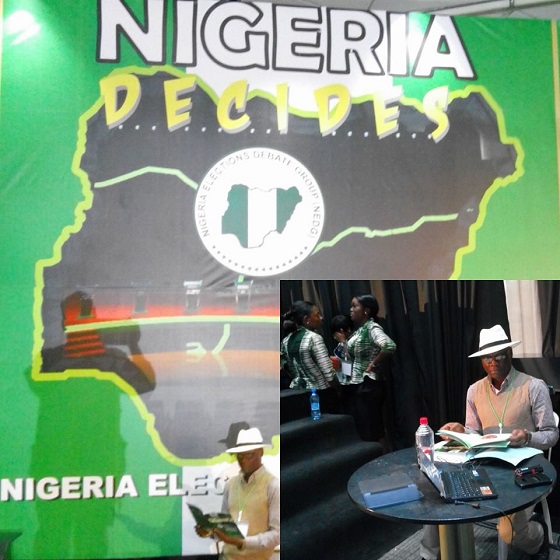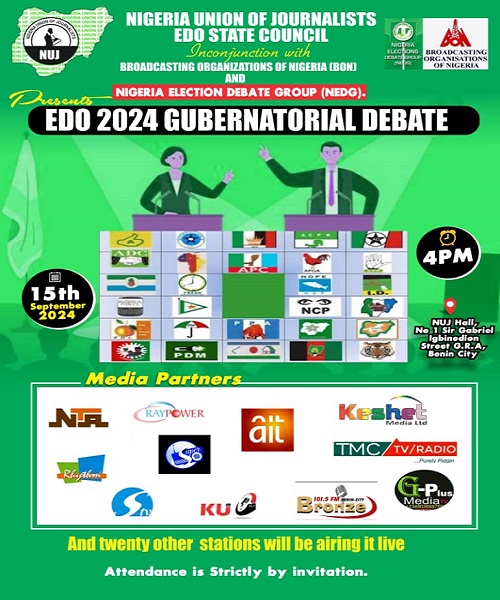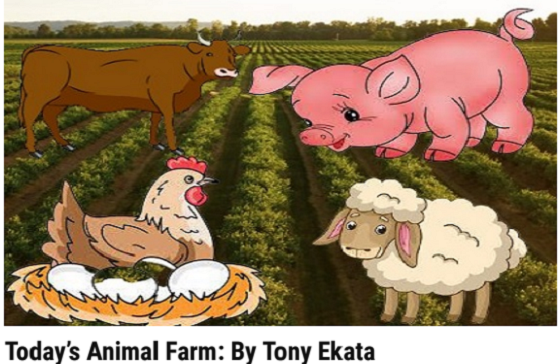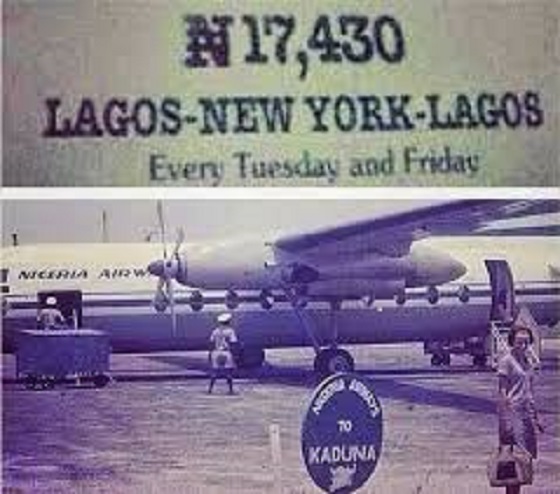Post Published on August 21, 2024 by Anthony Ekata
The Edo State 2024 off-season gubernatorial election is barely one month away. Each passing day comes with renewed campaign vigour by the candidates and their supporters. It is difficult to say if the campaign frenzy is more on the ground or on social media platforms, where friends are turning into temporary enemies because of different political convictions concerning the candidate deemed suitable to succeed the incumbent governor, Godwin Nogheghase Obaseki of the People’s Democratic Party (PDP), especially between the two front runners, Senator Monday (Akpakomiza) Okpebholo of the opposition All Progressives Congress (APC), and the PDP’s Dr Asuerinme (Asue) Ighodalo, both from Edo Central Senatorial District.
Perhaps the most contentious topic on social media is the recurring issue of the imperative of debates and formal public engagements, which the APC’s candidate is perceived to be avoiding. Supporters of the PDP candidate claim that Senator Okpebholo is reluctant to engage the public via an official medium because of his communication handicap. On the contrary, his supporters and publicity handlers dismiss this as baseless, arguing that there is no nexus between language competence and administrative prowess.
The most impressive anti-debate argument I have seen lately is that by one Martins Itua, a native of Iruekpen in Edo State. Itua avers in his piece titled, In Defence of Senator Monday Okpebholo:
“Senator Monday Okpebholo’s journey is not one that fits neatly into the conventional expectations of those who measure leadership by polished rhetoric or academic credentials alone. His story is one of resilience, grassroots connection, and a deep commitment to public service. While some may see his candidacy as a joke, the thousands of people who have benefited from his leadership know it is anything but.
“It is easy to criticize a leader for their communication style or perceived sophistication, but leadership is about far more than eloquence. Senator Okpebholo’s effectiveness as a leader is rooted in his ability to connect with people on a personal level, to understand their needs, and to take decisive action. His leadership style is characterized by empathy, a deep understanding of the challenges his constituents face, and a relentless drive to make tangible improvements in their lives.”
The seeming irony in this, however, is that Itua’s treatise is written in perfect, lucid, English. Why did he, a native of Iruekpen, not write it in Esan or Pidgin English? The reason is clear. He wants to communicate his fantastic defence to the greatest number of people, especially opinion leaders, the same people he classified as ‘elitist’, who can break down the message to the linguistically challenged members in their constituencies and across the world. Herein lies the reservation about Monday Okpebholo’s difficulty or reluctance to communicate with the people. Do we just believe he possesses the “diverse qualities that can make someone an effective and transformative leader” because Itua says so?
Itua argues that polished rhetoric, what others call oratory, and academic credentials do not make a great leader. The point cynics are making is that there is also no evidence that a barely literate person with all the empathy and grassroots connections possible, can successfully govern a state, especially in this knowledge-driven digital information age. They cite the ignominious performance of Barkin Zuwo, former Kano State ‘illiterate’ governor between October 1983 and December 1983. It is illogical and hypocritical, they argue, that those who consider education, cognate experience, effective communication, capacity and core competencies sine qua non in appointing people to head critical public institutions, departments and agencies, sacrifice these prerequisites on the altar of prebendalism and primordial sentiments when it comes to the more crucial task of electing the president of a country or the governor of a state.
Specifically, what is the place of debates in all this?
Debates in modern elections cannot be dismissed with a wave of the hand. Thousands, possibly millions of Nigerians, watch seasonal debates between US election candidates. An estimated 51 million people worldwide watched the June 2024 presidential debate between President Joe Biden and Former President Donald Trump, then presumptive nominees of the Democratic and Republican parties, respectively. During the debate hosted by CNN and simulcast across 22 networks, Trump’s penchant for making false and misleading statements was in the spotlight on a global stage when he reeled out the following claims proven to be false:
- Trump warned that Biden “wants to raise your taxes by four times,” but Biden has not proposed anything like that.
- Trump falsely claimed that “the only jobs” Biden “created are for illegal immigrants and bounced back jobs that bounced back from the COVID.”
- Trump claimed that Biden “caused the inflation,” but economists say rising inflation was mostly due to disruptions to the economy caused by the pandemic.
- Trump grossly inflated the number of immigrants who have entered the country during the Biden administration — putting the number at 18 million to 20 million — and he said, without evidence, that many of them are from prisons and mental institutions.
- Trump falsely claimed that “some states” run by Democrats allow abortions “after birth.” If it happened, it would be homicide, and that’s illegal.
- While talking about international trade, Trump falsely claimed that the U.S. currently has “the largest deficit with China.” In 2023, the trade deficit in goods and services with China was the lowest it has been since 2009.
- Trump wrongly claimed that prior to the pandemic, he had created “the greatest economy in the history of our country.” That’s far from true using economists’ preferred measure — growth in gross domestic product.
- Trump made the unsupported claim that the U.S. border with Mexico is “the most dangerous place in the world,” and suggested that it has opened the country to a violent crime wave. The data show a reduction in violent crime in the U.S.
These false and misleading claims are fed Trump’s supporters around the world and form the basis for many considering him the president America needs now.
President Biden also made a few misleading claims:
- Biden claimed that Trump oversaw the “largest deficit of any president,” while Trump countered that “we now have the largest deficit” under Biden. The largest budget deficit was under Trump in fiscal year 2020, but that was largely because of emergency spending due to COVID-19.
- Biden misleadingly said that “Black unemployment is the lowest level it has been in a long, long time.” The rate reached a record low in April 2023, and it was low under Trump, too, until the pandemic.
- Biden criticized Trump for presiding over a loss of jobs when he was president, but that loss occurred because of the COVID-19 pandemic.
More importantly, speculations that President Joe Biden was unfit for a second term at the White House were confirmed at the debate, where his incipient senility was underpinned by his periodic incoherence and zone-outs. That laid the foundation for his subsequent withdrawal from the presidential race. Therefore, beyond displaying oratorical and communication skills, and according the electorate the opportunity to assess the depth of a candidate’s knowledge of the challenges awaiting them in the office they seek, the feasibility of the strategies they intend to use to address them, if any, and critical insights into their physiological fitness, debates also unveil their character traits or integrity based on verbal as well as non-verbal communication, otherwise known as body language. Such verbal and non-verbal communication made the 42nd president of the United States, Bill Clinton, to conclude that Donald Trump is a good actor. Referencing Trump’s debate with President Joe Biden, Clinton said:
“I almost croaked during the first debate when Trump said ‘nobody respect America anymore’ like they did when he was president.”
“And with a straight face! Look, you gotta give it [to him] — he’s a good actor.”
“The next time you hear him, don’t count the lies—count the I’s. He’s like the tenor warming up before the opera: me, me, me, me,” Clinton added, hitting at Trump’s reputation for telling lies and making everything about himself.
According to Ben Kubassek, “No matter how educated, talented, rich, or cool you think you are, how you treat people ultimately tells all. Integrity is everything.” Arguably, there is no president in US modern history with as much integrity deficit as Donald Trump. He proves this again and again at formal public engagements, including debates and media interactions.
It is unimaginable that a candidate for any election in the US would refuse to turn up for a debate for no tangible reason, considering the premium placed on debates in today’s America. To this, cynics would be quick to retort, “Nigeria is not America!” Among such naysayers, however, are people who have second homes in America, whose children are studying or living in America or who would send all their children to go and study in America if they had the opportunity. That is how hypocritical we have become.
Coming back home, there are antecedents of Nigerian presidential candidates refusing to attend debates. President Goodluck Jonathan did not attend the televised debate of the pre-2011 presidential election organised by NN24. The explanation given for that then was that he had a pre-scheduled official engagement with some foreign leaders. His opponents believed this to be an excuse or a cover-up for the lack of achievements to talk about in the one year he had spent as president since taking over from the late Musa Yar’Adua.
Four years later, General Muhammadu Buhari, the opposition APC’s standard bearer, refused to attend the debate organised by the Nigerian Elections Debate Group (NEDG) for no clear reason. I was a rapporteur at the 2015 NEDG-organised presidential debate which took place at the International Conference Centre Abuja. I still have a draft copy of the final report which captured the visions of the candidates who turned up and their strategies to tackle the challenges facing the nation then. During that debate, questions were entertained from the audience at home and in the Diaspora. This was to ensure that the concerns of all Nigerians were addressed as much as possible.

Incumbent President Dr Goodluck Jonathan of the PDP attended that debate with Comfort Oluremi Sonaiya of KOWA Party, Martin Onovo of the National Conscience Party, Godson Mgbodile Okoye of the United Democratic Party, and Chekwas Okorie of the United Progressive Party. Below is how the party candidates present addressed questions asked on the key challenges of corruption, insecurity, food security, education, and the economy:
QUESTION: How will you address corruption?
NCP
Martin Onovo of the National Conscience Party said because of its systemic and endemic nature, corruption expenditure continued to erode resources that should be used for development. His government would use a 4Es model to tackle the scourge: 4 Es; Education, Leadership by Example, Empowerment – pay living wages and provide social welfare, and Enforcement of anti-corruption laws.
PDP
The PDP’s presidential candidate, Goodluck Jonathan, pointed out that enforcement alone would not eradicate corruption saying that prevention was more potent by making sure nobody has the opportunity to steal what belongs to the people. He gave examples with the government’s Integrated Payment and Personnel Information System (IPPIS) initiative which had succeeded in cutting off payroll thieves in the public service. Jonathan stressed that similar measures were being applied in the revenue agencies and the oil sector while institutions were being strengthened. The president said it was wrong for people to say his government was not prosecuting offenders, as the Judiciary is independent of the Executive. What was needed, according to him, was a drastic change in orientation regarding value systems.
UDP
A United Democratic Party government, Godson Okoye said, would reorder the system inherited from the colonial masters and make merit its mantra, as a structure based on ethnicity and not on CAM (competence, ability and merit), would remain corrupt.
UPP
Chekwas Okorie declared that a UPP government would fight corruption from the top. In addition, it would:
- Strengthen the weak anti-corruption laws
- Make declaration of assets compulsory and public, and review such declarations annually
- Tie security votes to only security matters and account for them
- Limit immunity to civil matters and prosecute all criminal matters
- Get foreign bodies to help track public funds stashed abroad
KOWA
Oluremi Sonaiya of KOWA said corruption was largely responsible for under-development through the diversion of development funds. She questioned the salaries of Nigerian lawmakers which she said were the highest in the world and stressed that the running of the public system must be merit based and people should be rewarded for the work they do. Her government would use monitoring and non-monitoring strategies to tackle corruption.
QUESTION: What is your strategy to make the oil sector more productive?
UDP
The UDP’s strategy would consist of building small-capacity refineries if big ones could not be built immediately for domestic refining and value addition at home, and challenging the nation’s intellectuals and scientists to provide solutions.
UPP’s strategy:
- Get the National Assembly to pass the Petroleum Industry Bill for enactment
- Privatize and completely deregulate the petroleum sector in a manner that would be attractive to local and foreign investors
- Stop gas flaring and harness gas for power
- Break up the cartel in the petroleum sector
- Punish culprits of oil sector crimes
KOWA’s plan:
- Reduce government hold and ownership and allow more private-sector participation
- Introduce tax incentives to motivate investment in the sector
- Strengthen liquefied natural gas strategy
- Get the traditional security agencies (and not consultants) to monitor and protect oil facilities
NCP
The NCP candidate said he would ensure that there is no privatisation of the downstream sector and abrogate oil subsidy as 500 billion dollars on subsidy was unacceptable. The NCP government would further restore existing domestic capacity and upgrade existing refineries for efficient refining which would lead to a lower pump price.
PDP
On his part, Goodluck Jonathan of the ruling PDP said his government would further liberalise the sector in terms of refining, open it up for private sector participation and encourage the private sector to drive the process. He cited the privatised Eleme Petrochemical Industries as an example of the gains of privatisation. Jonathan gave the assurance that the government was dealing with the issues of militancy and sabotage and had awarded contracts to check the stealing of products. While acknowledging that proper management would be facilitated by the Petroleum Industry Bill by making the system more transparent, he proffered the unbundling of the NNPC as part of the solution.
To be concluded in Part 2.
Watch out!







